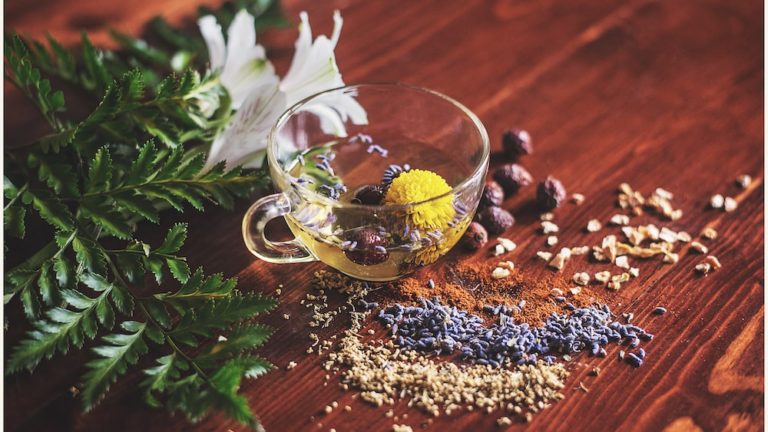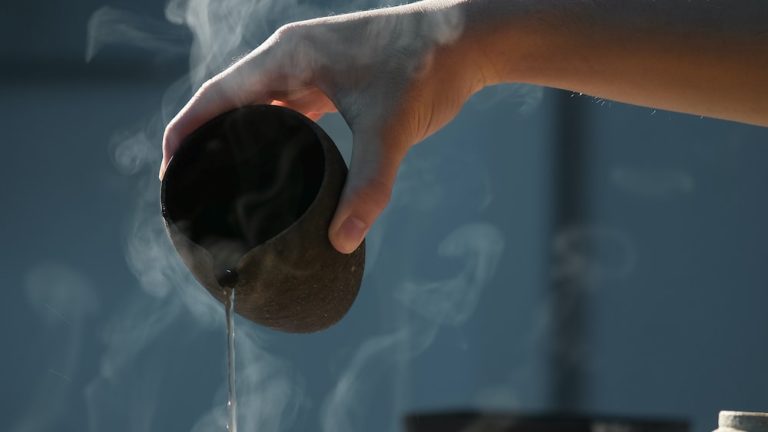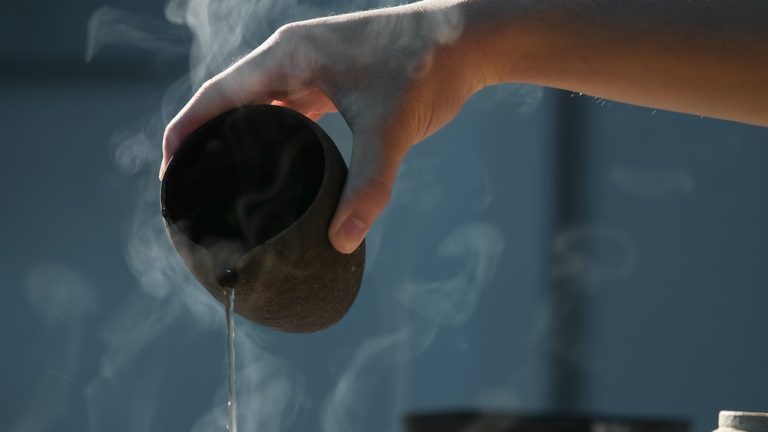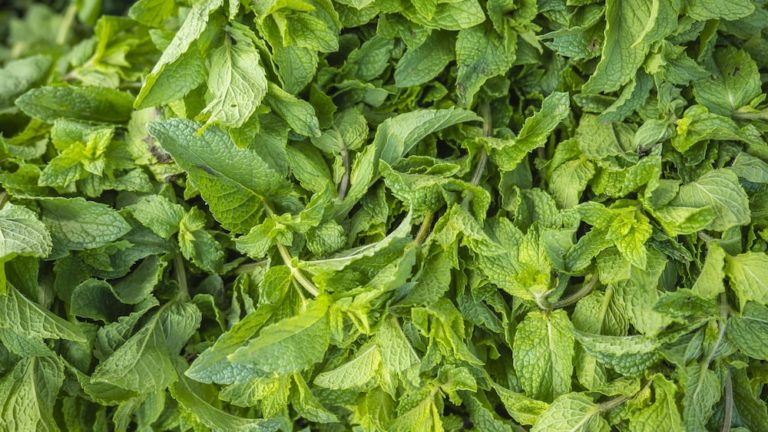White Tea Vs Herbal Tea: Which Is Healthier For You?
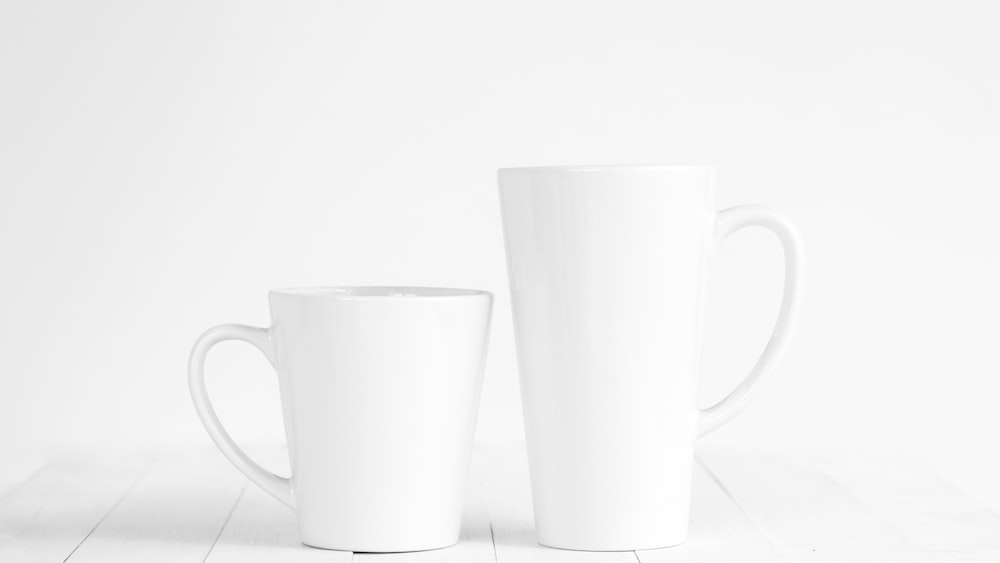
White Tea Vs Herbal Tea: Which Is Healthier For You?
Not too long ago, being a tea enthusiast was as simple as reaching for your favorite box of Earl Grey or English Breakfast. But fast forward a few decades, and you’re more likely to find yourself standing in the tea aisle, quivering your whiskers, eyes darting from this ‘Silver Needle’ to that ‘Chamomile’. Indeed, the world of tea has expanded, and it’s time for us to expand with it. Today, we dive into the intriguing world of white tea vs herbal tea.
Now, you might be thinking, “Well, isn’t tea…just tea?” Why, my dear reader, you’re about to embark on a flavorful journey that will make you rethink such assumptions. So, grab your finest teacup because we’re about to steep ourselves in the world of white tea and herbal tea.
From the lush mountains of Fujian, China, to your local health food store, white tea has made quite a journey. And herbal tea, though devoid of “actual tea leaves”, has a treasure trove to offer in terms of taste and health benefits. Ever wondered which is healthier between white tea and herbal tea? Let’s find out.
Understanding White Tea
Picture a pristine field of tea bushes, the early morning mist gently kissing the young buds. This, dear tea lovers, is the cradle of white tea.
What is White Tea?
You may wonder, what exactly is this white tea that everyone’s been buzzing about lately? Well, it’s not actually white – talk about irony.
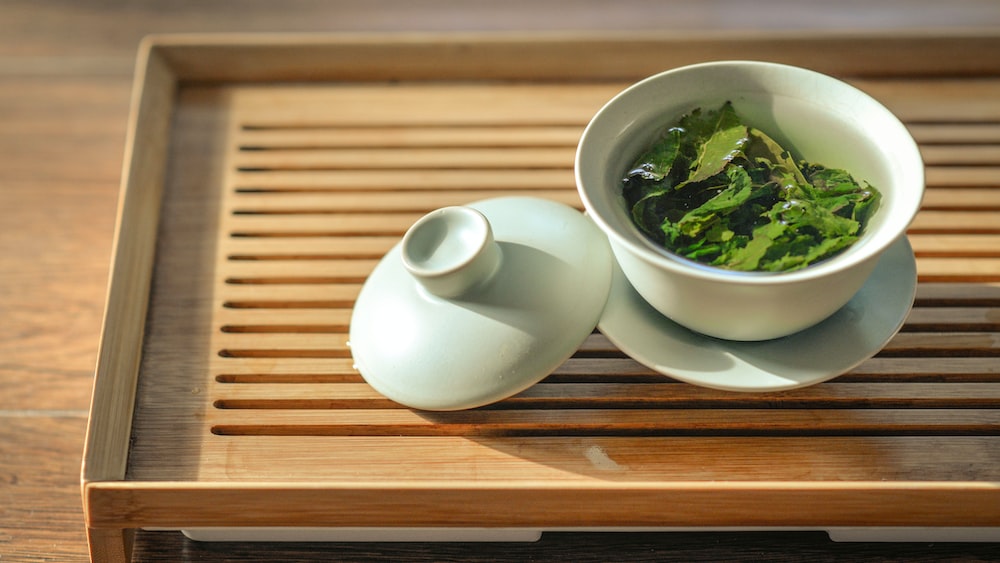
White tea originates from the same plant as black and green tea, the Camellia sinensis. Its name comes from the fine, silver-white hairs on the unopened buds of the tea plant. Here’s something sizzling hot for you – white tea is the least processed among all types of tea, which means it can preserve its natural nutrients better!
White tea, derived from the same plant as black and green tea, gets its name from the silver-white hairs on the unopened buds and is the least processed type of tea, making it a powerhouse of natural nutrients.
The Health Benefits of White Tea
Speaking of nutrients, let’s jump right into the health benefits of white tea. Dive in, the water’s warm!
According to several studies, white tea is packed with antioxidants that do everything from boosting cardiovascular health to improving skin quality. Can you imagine? Sipping a cup of this exquisite brew could be just the ticket to glowing skin.
But wait! There’s more. Remember the part about white tea being least processed? Well, it also means that it retains a high level of catechins, powerful antioxidants associated with weight loss. That’s right. Your daily cup of white tea might just be the secret ally in your weight-loss journey.
Caffeine Content in White Tea
Now, let’s switch gears and talk about something that makes some jump for joy and others twitch their noses – caffeine.
White tea is lower in caffeine compared to other teas like black and green. You’ll find that an average cup has around 15 to 30 milligrams, about the quarter the content of an average cup of coffee! This makes it a wonderful choice for those who’d like a mild pick-me-up without feeling like a wind-up toy.
But remember, the exact caffeine content can vary depending on the specific type of white tea and the brewing techniques. It’s a bit like our tea world – you think you’ve got it figured out, and then you find a new layer of complexity!
Understanding Herbal Tea
Having embarked on our white tea journey, let’s now hop onto the herbal tea bandwagon. Or should I say, tea cart?
What is Herbal Tea?
Hidden beneath the umbrella term “herbal tea” is a kaleidoscope of flavors. Unlike white tea, herbal tea isn’t derived from the Camellia sinensis plant. Instead, it’s a concoction of infusions made from spices, herbs, and other plant materials. How’s that for variety?
Despite not technically being “tea,” the term has been widely adopted for ease of reference. From chamomile to peppermint, echinacea to rooibos, each type of herbal tea not only flaunts a unique flavor but also boasts of distinct health benefits.
The Health Benefits of Herbal Tea
Alright, let’s dive into what’s so great about sipping on herbal tea.
First off, many herbal teas, such as ginger and peppermint, have been noted for their digestive benefits. So, if last night’s dinner is creating a ruckus, a cup of herbal tea might be your friend. Herbal teas like chamomile and lavender are known for their calming effects. A cozy, blanket–wrapped evening with a good book and a steaming cup of chamomile – sounds perfect for that early night in, doesn’t it?
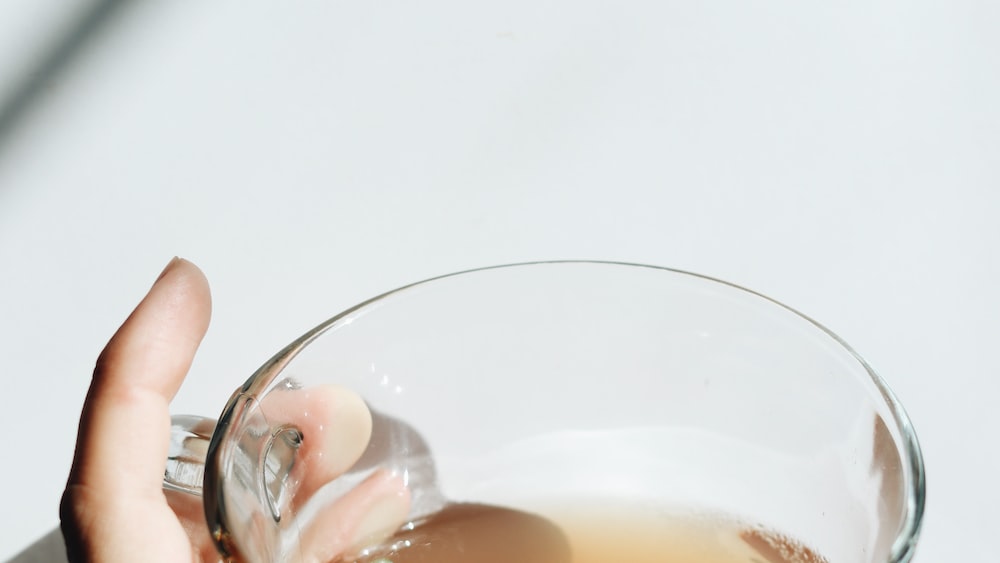
Remember, different herbal teas pack different benefts, so pick your choice wisely, and let them work their magic!
Herbal teas have various benefits, including aiding digestion and providing calming effects, making them a great choice for improving overall well-being.
Caffeine Content in Herbal Tea
If you’re prone to dance in your pajamas at midnight, perhaps you’re best off sipping a cup of herbal tea before bedtime. So, why so? Because herbal tea is the Wallflower at the caffeine content high school ball. In fact, it’s so demure it takes a step back, shying away from containing any caffeine at all.
We often bring a steaming cup of chamomile tea or peppermint tea to our lips with puffy eyes and hopes of a good night’s sleep. They’re two prime examples of herbal teas that have no caffeine. Zilch. Nada. Nil. It’s what makes these sleepy-time teas perfect for nighttime rituals.
Comparing White Tea and Herbal Tea
And now, the moment you’ve all been waiting for – our champions in the ring, it’s white tea vs herbal tea! Before they throw their first (metaphorical) punches, let’s keep in mind that they’re both charm-loaded teas with their unique strengths, perfect in their own ways.
Taste Profile: White Tea vs Herbal Tea
When it comes to the taste, white tea and herbal tea have their unique profiles. Bubbling in your cup, white tea is the gentle soul. It’s subtly sweet, light, and often sports a delicate floral undertone.
Brew a cup, take a sip, and you might feel like a daisy sprouting in the tranquillity of a serene garden. Imagine the chirruping of the birds, the soft kisses of the breeze. In contrast, herbal tea is an unlikely chameleon. Its taste changes entirely depending on the herbs used.
Peppermint tea is a polar blast in a cup, with its chill minty freshness. Chamomile is delicate, with a hint of apple sweetness. Hibiscus tea pouts in tongues with its tartness. In essence, herbal teas often reflect the raw and unadulterated flavor of the herbs involved.
Nutritional Differences: White Tea vs Herbal Tea
Stepping from taste and voyaging into nutrition, there is a shift in dynamics. It’s still white tea vs herbal tea, but this time, it’s a dance under an academic microscope. Rest assured, both teas have antioxidants playing around in their throws, promising good health.
Remember the hype around white tea being the least processed tea? Well, that gives it the advantage of being notably high in antioxidants compared to other teas, leading to potential protection from heart disease and certain types of cancer. And in its arsenal, white tea carries trace amounts of minerals and vitamins that radiant health.
And yet, herbal tea doesn’t trail far behind. They’re often decently packed with beneficial compounds, depending on the specific herb used. Remember the tart hibiscus tea we were talking about earlier? Well, it’s known for its high vitamin C content, you’d think it’s part orange! So, nutritional content varies vastly among different herbal teas.
Both white tea and herbal tea have antioxidants that promote good health, with white tea offering higher levels of antioxidants and trace minerals and herbal tea varying in nutritional content depending on the specific herb used.
Caffeine Comparison: White Tea vs Herbal Tea
Ah, caffeine, that spirited compound that keeps the world moving! The dramatic duel of white tea vs herbal tea swings in favor of white tea when it comes to caffeine. It does carry a dose, substantially less than the other caffeinated heavyweight teas like black or green tea. So, if you’re on team “moderate caffeine,” white tea might be your brew.
On the other hand, if the mere whisper of caffeine sends jitters down your spine, stay safely in the herbal lane. As we earnestly discussed earlier, herbal teas practically swear off caffeine, making them the perfect nighttime companion or suitable for those who prefer to sidestep caffeine entirely.
It’s a different comfort in each cup. Whether you’re face-planting into your pillow, wrecked after another Monday or in need of a pinch-to-wake-up kind of refreshment, there’s a tea for every ebb and flow of life.
How to Choose Between White Tea and Herbal Tea
Decisions, decisions. Choosing between white tea and herbal tea feels like being at the crossroads, with paths equally inviting and richly rewarding. It’s a tough call, but we’re here to help you through it.
Factors to Consider When Choosing a Tea
- First things first, taste is paramount. We’re all wired differently. You might crave the hushed whispers of sweet subtlety found in white tea or perhaps the bold linguistic flavors of herbal tea tug at your palate.
- Second, consider your caffeine tolerance. Are you the powerhouse that gulps down espressos no sweat, or do you waltz towards decaf with upturned nose? If you’re sensitive to caffeine or prefer your brew in the evening, herbal tea might be the better bet.
- Lastly, consider the health benefits you seek. Both counterparts offer impressive health benefits. From high antioxidants in white tea to the specific health-enhancing compounds in diversely flavored herbal tea, there’s a wellness pot at the end of every steep.
As we quench our thirsts on some heavenly teas, we must remember that our sense of taste, wellbeing, and desired experience are different from everyone else’s. Celebrate the diversity; after all, variety is the spice of life, right?
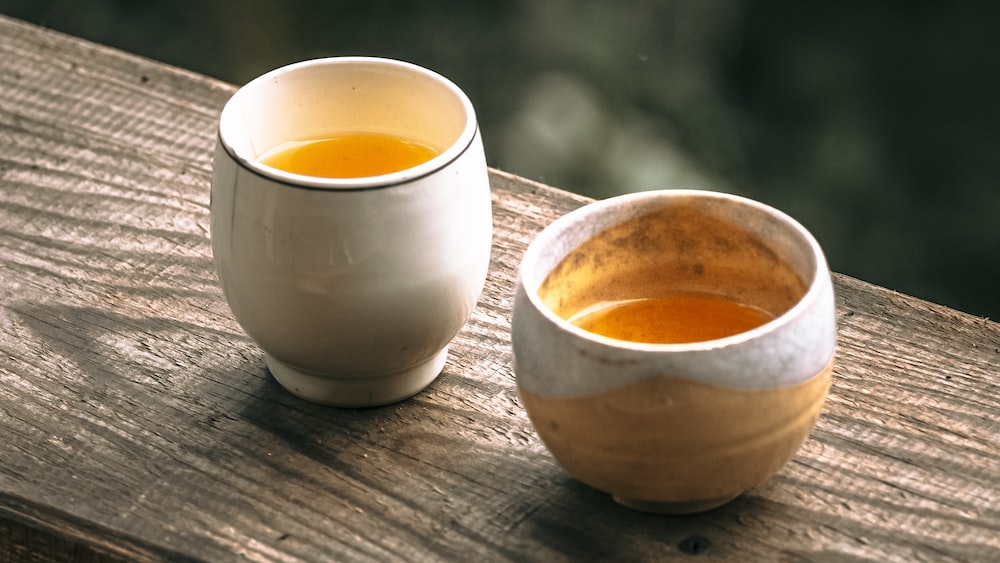
How to Brew White Tea and Herbal Tea for Optimal Health Benefits
Brewing tea, much like performing a harmonious dance, requires grace, patience, and a dash of panache – don’t worry, I’m kidding about the panache. But seriously, wouldn’t it be amazing if our teapots had tiny tutus?
For white tea, the water temperature should be just under boiling, around 185°F (85°C), and you should let it steep for 4-5 minutes. Ignore the temptation to create a veritable tempest in your teapot by boiling it to oblivion, as this may render your tea bitter – even the best of us can turn bitter under too much heat, right?
With herbal tea, it’s a tad bit different. You can practice your impromptu skills and crank the heat up to a full boil. Once your water is roiling away, eager to embrace your tea, let the tea leaves frolic in the water for about 5-7 minutes. Like the most unforgettable stories, herbal teas need time to unfold and reveal their charm.
FAQs
1. What is the main difference between white tea and herbal tea?
The main difference between white tea and herbal tea predominantly lies in the leaf used. White tea is a true tea made from the leaves of the Camellia sinensis plant, much like its charismatic cousin, green tea. On the other hand, herbal tea is more of an ensemble cast, featuring various herbs, flowers, or fruit infusions, and doesn’t typically include actual tea leaves.
2. Is white tea or herbal tea better for weight loss?
Considering weight loss, both white tea and herbal tea have their strong suits. Ultra-lightweight (pun intended) and packed with antioxidants, white tea has been linked to breaking down fat cells. However, certain herbal teas like green tea also introduce themselves as weight loss warriors, boosting metabolism and fat burning. The answer, therefore, lies in boosting your cup with a balanced diet and regular exercise.
3. Which tea has more health benefits, white tea or herbal tea?
Looking exclusively at health benefits, it’s tough to crown one as the tea king. White tea soars high with antioxidants, potentially scavenging harmful free radicals. However, the health benefits of herbal tea are no less, varying based on the cornucopia of herbs used, and can range from digestion aid to sleep support. But let’s be real, they both win in the “making us feel cozy” department.
4. Can I drink white tea and herbal tea on the same day?
Yes, you absolutely can have white tea and herbal tea on the same day. Mix it up, have a tea party if you will. There are no firmly established rules declaring tea-monogamy. Just remember balance is key and too much of a good thing can be, you know, not a good thing.
Conclusion
In the glimmering world of tea, one can easily find themselves at a crossroads regarding “white tea vs herbal tea”. However, the beauty of this lies in the fact that we can experience the unique health benefits, taste profiles, and moments of tranquility each type unfurls. Perhaps, in essence, it’s not about deciding which is the ultimate winner but rather appreciating the diverse range of experiences these brews offer.
Remember my dear tea enthusiast, the world of tea is akin to an elegantly penned novel with myriad chapters each as enchanting as the last. Don’t merely skim through or limit yourself to one page! Explore, bask in the comforting warmth, and let every tea tell you its tale.
As you wrap your fingers around your next cup and breathe in the heady aroma, no matter if it’s white or herbal or, for those rebels at heart, a cheeky green tea, let this be your mantra: Life’s like a cup of tea, it’s all in how you brew it. Till next time, sip enthusiastically, live joyfully. This is Zoe, signing off.


